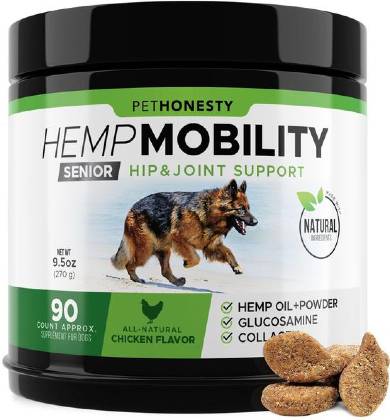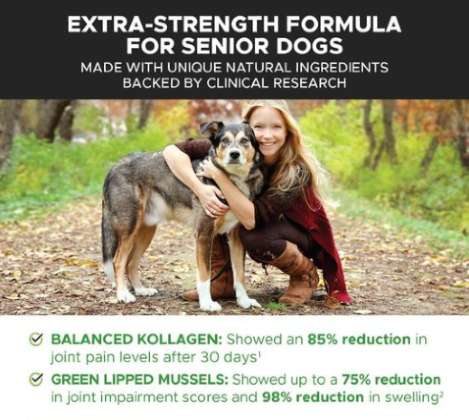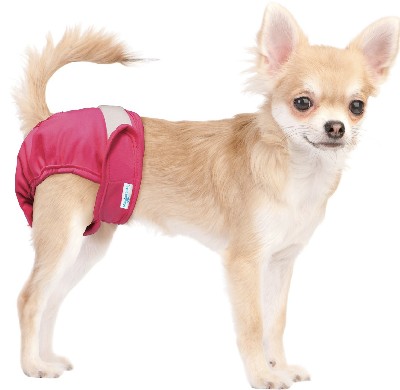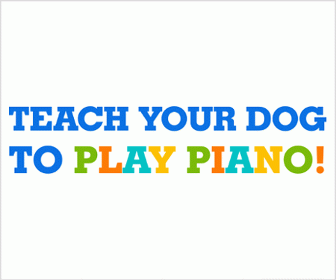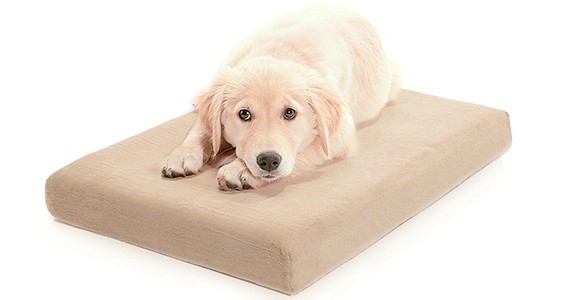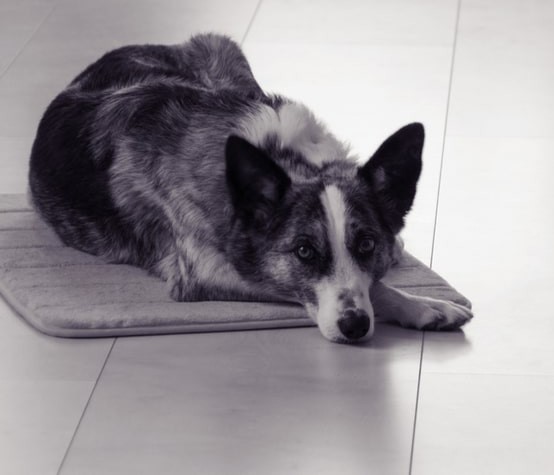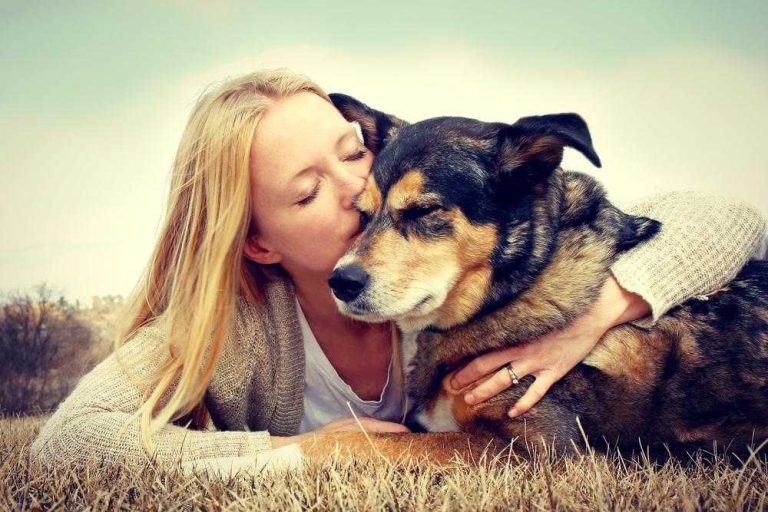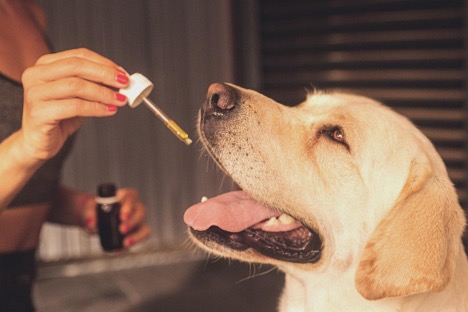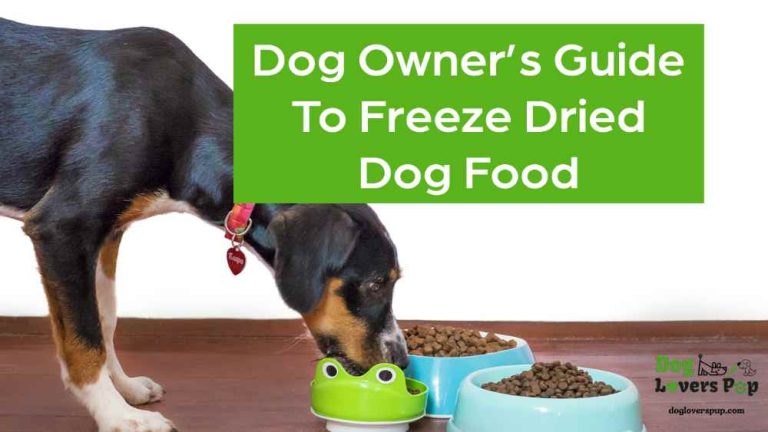Senior Dog Care Guide
The Definitive Guide On Caring For Older Dogs
Taking care of a senior dog is challenging yet very important. As a pup grows up and eventually ages, its needs will significantly change. You need to change its diet, how you take it for exercises, and when to schedule vet visits, etc.
As a pet owner, the best you can do is to help your furry friend enjoy its golden years. But how do you go about it? Well… below is an overview of various important things that you should know and do to make your dog happy and healthy.
Table of Contents
Tips for Taking Care of Senior Dogs
There are numerous things that you can do to maintain your dog’s quality of life. If you have a senior pet, here are some of the things that you need to know and do:
Implement a Healthy Diet

A proper diet is everything. Just the way we are told to eat healthy meals to promote wellness, dogs also need this. The food should have a good amount of nutrients, fewer calories, and less fat. Some of the food options should include dairy products, chicken, fish, and red meat among others.
But mature dogs normally have food issues. This may sometimes portray itself as a lack of appetite, poor digestion, chewing problems, and even obesity. So, consider to always feed it more fiber to promote digestive health and reduce the carb intake for effective weight management. Here is our review on some of the top rated senior dog food brands.
Seniors Need Regular Exercises
Are you aware that as the dog ages it still needs exercise? You were probably thinking that seniors don’t need exercise because of their state. However, you need to provide it with regular but moderate training. Too little exercise won’t be effective in supporting muscle development while too much of it can considerably weaken it.
We recommend regular park visits and outdoor walks. This is important in preventing obesity and excessive weight gain. Additionally, exercises help to make the muscles supple and strong. It improves mood, minimizes the effects of anxiety, and stimulates appetite.

Consider Using Multivitamins and Supplements
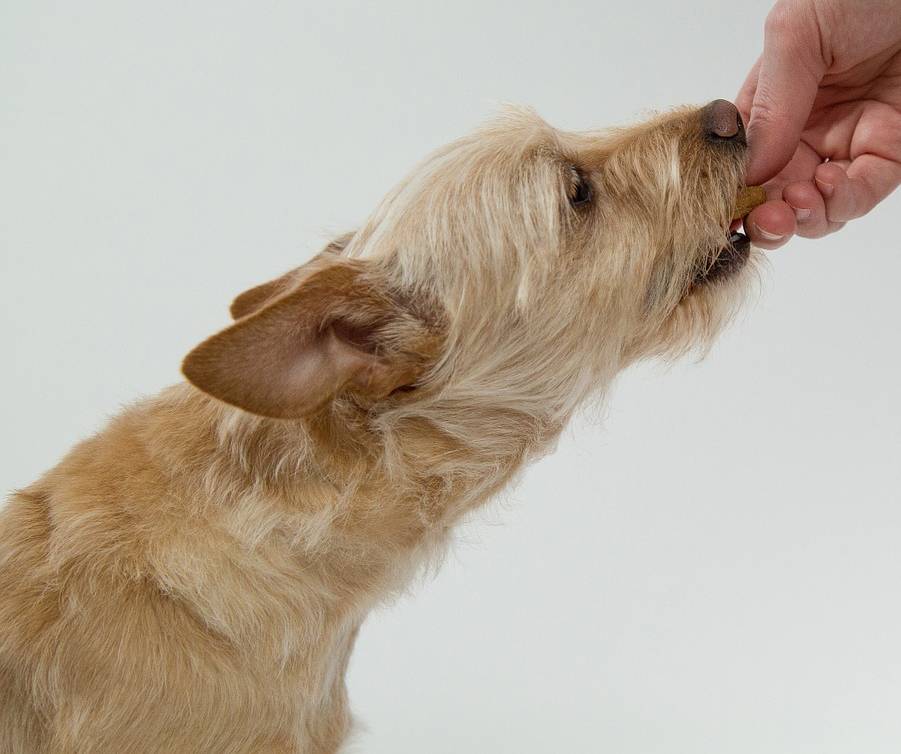
Whether you are using small or large breed senior food, it’s good to also add it a few supplements for your senior dog. There are many supplements that are great for senior dogs. But you might be wondering what the best supplements for your furry friend, right?
Generally, we find supplements with salmon fish oil to be great. They have many health benefits and are known to support joint function and nourish the dog’s coat. Additionally, this type of supplement is good for dogs suffering from arthritis, especially in higher doses.
Hip & Joint Supplement for Older Dogs - with Hemp Oil & Hemp Powder, Glucosamine, Collagen, MSM, Green Lipped Mussel
Delicious Chews For Mobility & Maximum Hip & Joint Health
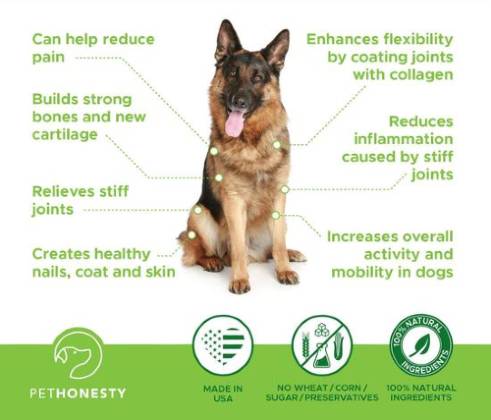
- Improve arthritic symptoms and reduce joint pain and inflammation
- Builds stronger bones and new cartilage
- Relieve stiff joints & enhance joint flexibility with collagen
- Creates healthy nails, coat and skin
- Increases overall activity and mobility in your dogs
- 100% All Natural Ingredients, GMO Free & Zero Chemicals, Wheat, Or Other Bad Stuff
- 100% satisfaction guaranteed – or your money back!
- Made in USA
Made With 100% Natural Ingredients. Zero Chemicals.
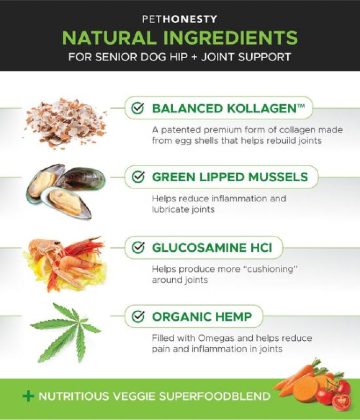
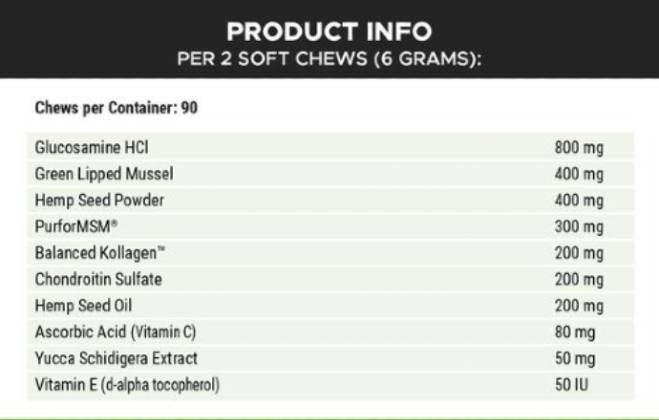
Groom Your Geriatric Pal Frequently
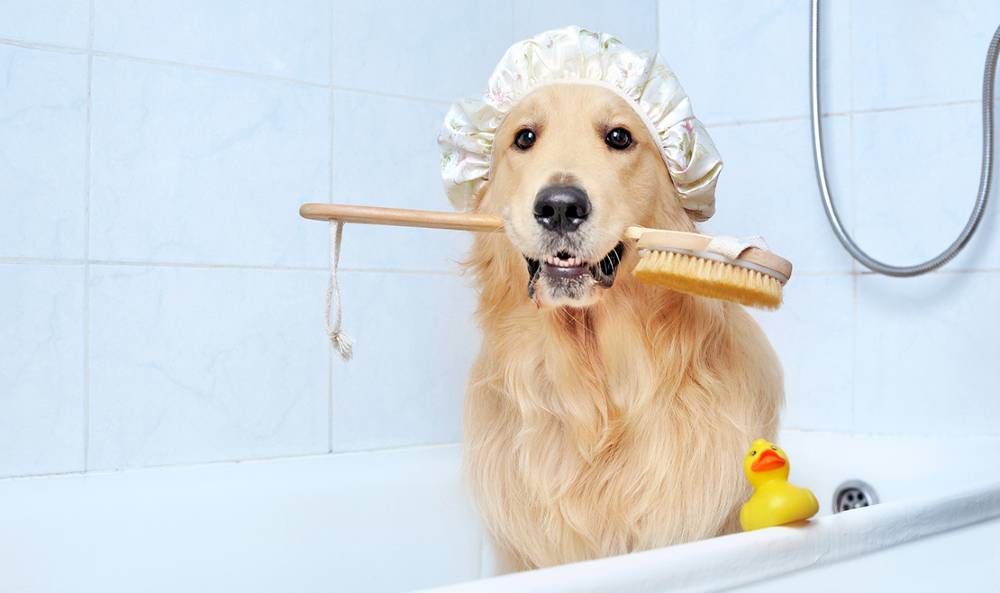
All dogs need proper grooming for healthy development. However, geriatrics normally need special care because of their unique needs. For instance, you might need to do frequent haircuts at the back if the pet constantly has debris on its behind after relieving itself.
Clip the nails to avoid excessive growth. With old age, longer nails can reduce the dog’s level of activity due to pain. Brush the fur frequently to remove debris and use an eco-friendly dog shampoo to wash the coat. Always bathe and thoroughly rinse the dog and then dry it using a towel or dog’s hairdryer.
Consider its Dental Health
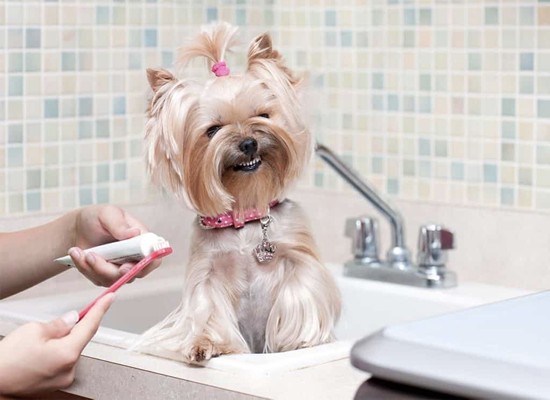
Do you think it’s silly to brush your dog’s teeth? Well, it is not. Dogs are just like us and, therefore, it’s up to you to take care of its mouth. Dental hygiene is crucial for dogs of all ages.
Daily cleaning your dog’s teeth using dog toothpaste can help your dog to avoid dental decay that may affect its eating habits. In case you find it hard to brush, then you can use dental treats or toys. We often do this to keep our pet’s teeth clean.
Frequently Monitor Its Vision and Hearing
One thing that I have realized that loss of hearing and vision is something that happens gradually. Sometimes it might be just a white discharge on your dog’s eyes or change in eye color. It usually starts slowly and most of the time pet owners will ignore it.
But with old age comes tumors and increased inflammation. So, constantly check and analyze how your dog responds to sounds and sights. Although the loss of vision or hearing due to old age can’t be corrected, you can still learn various management techniques to slow down the process.
Video Guide
Can Your Dog “Hold It”?
We use the term “hold it” when it comes to passing out urine. Well, can your senior furry friend do it? We understand that a senior dog might not be able to maintain their regular schedule. Whether you are at home or spending the whole day at the office, you need to come up with an effective solution.
There are clinical drugs that can help treat urinal incontinence. However, you can manage this by using doggie diapers (read our reviews on the best dog diapers). Pile some clean blankets or towels where the dog sleeps, or put waterproof pads under the bedding.
Stimulate Your Dog’s Mind
Even though we are dealing with senior dogs, it doesn’t mean that they don’t need mental stimulation. You will find that by just spending 10 to 15 minutes with your dog, you will be surprised by how much it will learn.
We recommend that you get it a puzzle toy or a nose game to stimulate its sniffing antics. Make it work for treats by hiding their favourite treats in certain places or consider agility training.
Although puppies are easier to train than older dogs but it doesn’t mean that old dogs can’t learn new tricks.
Protection From Extreme Weather Changes
Extreme weather changes can make your already fragile furry friend weaker. Heat or cold changes can enhance the severity of an already existing medical condition or even trigger allergic reactions. Keep your dog warm during winter. Get it some dog boots and a fleece blanket among other things.
During hot summers, make sure that you supply it with constant drinking water. This helps to regulate the internal body temperature by producing a cooling effect. Besides that, you can always take your pet outdoors on a shed or simply hang with it on the balcony.
Other things that you can do to help your dog handle extreme weather changes include taking it swimming or wetting its coat.
Invest in New Equipment
If this wasn’t in your plans, then you might want to consider it. Your pet’s needs will definitely change as they transition to senior dogs. So, you might be forced to spend money buying new equipment to handle these changes.
There are toys for senior dogs that are plain fun to use. Get something that stimulates the dog’s mental well-being and improves its cognitive functions that are rapidly declining. There are also orthopedic dog beds designed to relieve joint pains.
You can invest in a heated dog bed and pad, especially if your dog suffers from chronic pain and discomfort. A body-heat activated pad for pets can help to naturally and efficiently soothe painful muscles and sore joints.
Take Your Dog for Therapy
If your pet has difficulty moving around then it’s probably right to take it for supportive therapy. Limping and fatigue are some of the signs of painful and stiff joints. While clinical medicine can be beneficial, alternative medication is still good. They normally work efficiently minus serious side effects. The best therapies for older dogs include:
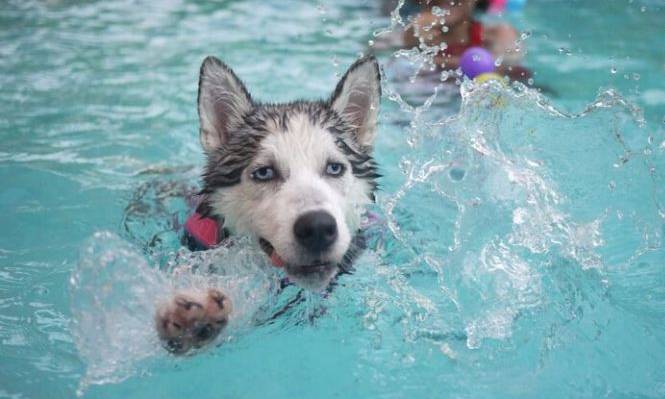
Hydrotherapy
This is a supportive type of canine therapy that involves water. Hydrotherapy can feature an underwater treadmill or swimming in a warm pool. The therapy can help to alleviate pain by relaxing stressed joints, supporting core strength, enhancing body awareness, and improving cardiovascular health.
Laser therapy
It’s one of the best ways to improve a senior’s walk. Laser therapy can help ease the symptoms of both chronic and acute arthritis and muscle pulls. In addition to that, it’s an effective mechanism in promoting healing, especially after suffering from injuries or surgical wounds.
We find it to be an affordable solution that provides the pet’s body with overall therapy. Just make sure that you consider what is in the laser package because different vets have their own unique variations.
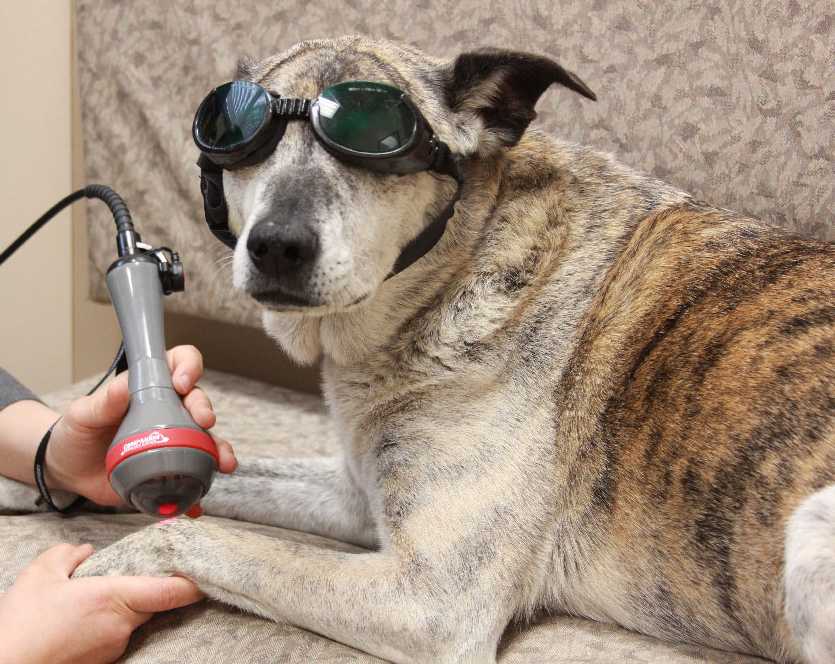
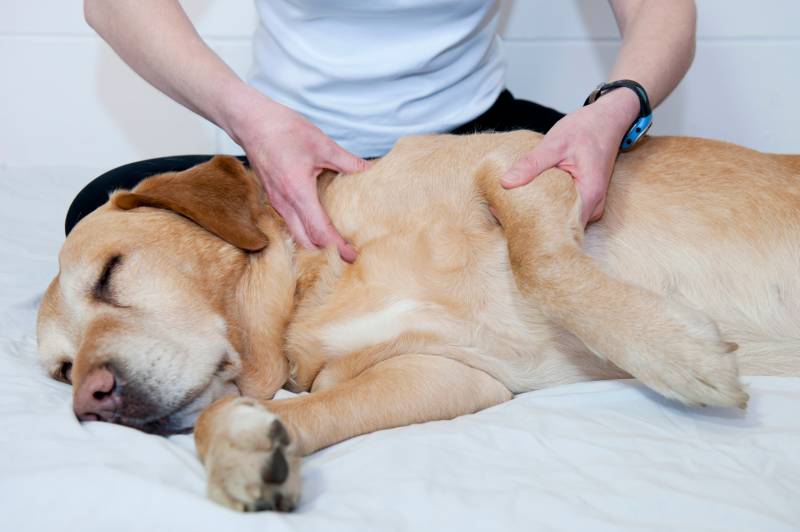
Physical therapy
It works in the same way as human physical therapy. If you want your pet to regain important body functions, then I recommend this. I find it to be a refreshing form of supportive therapy that leaves the pet feeling rejuvenated.
You will find that this therapy comes in variations. So, a vet will offer it to your pet depending on its needs. It’s a type of customized rehab program that includes a combination of joint mobilization, hydrotherapy, and therapeutic exercises among others.
Acupuncture
I know when you have heard about acupuncture and its effectiveness in improving human health. But, it’s actually a beneficial therapy that your senior pet can enjoy. Vets have indicated that acupuncture can help improve digestive health, neurological issues, and respiratory diseases, etc.
Note: acupuncture involves the use of fine needles. It might be a terrifying experience for your dog but generally, most dogs take it quite well. If you doubt your dog’s experience with it, then it may be administered during a sleep session.
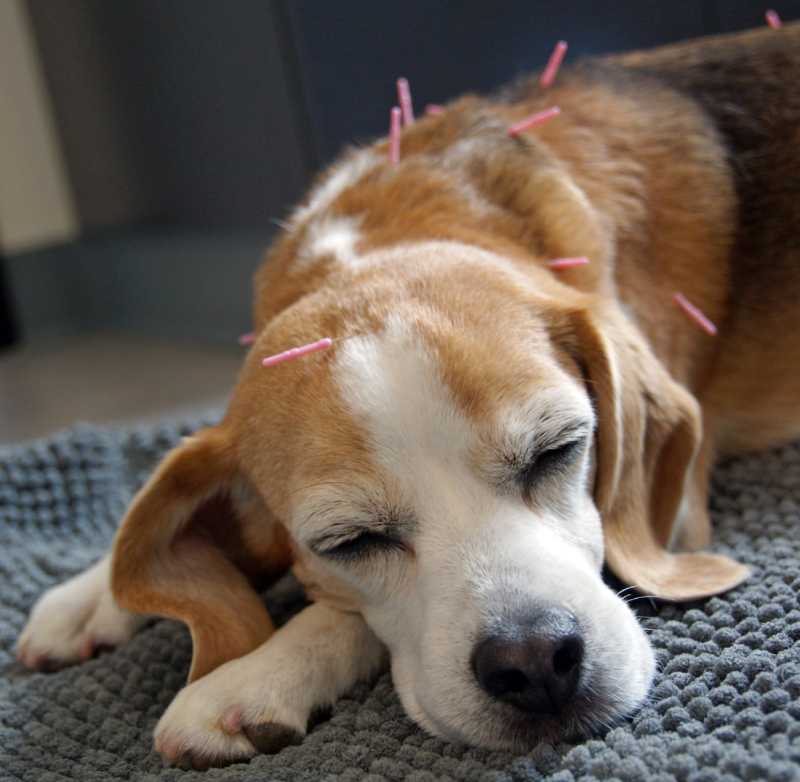
Adapt with Their Needs
The senior status comes with a lot of changes. As a pet owner, it’s your responsibility to adapt to these changes while your dog is going through them. You need to exercise patience because life isn’t going to be the same as it was.
The dog might no longer love its favorite food. This means that you have to consider using a new diet plan. You might be forced to buy or prepare meals that relate to their medical issues, e.g. food for arthritis. We understand that this may be tasking because you were not initially tasked with this extra work.
If your pet is suffering from anxiety, you might notice that they might be less social. So, you have to limit who has access to it. You might be forced to tone down the noise in your home, give them more time when you are out on walks, or they might start to lose their sense of hearing or sight.
At this point, it might be impossible for you to stick to a routine. So, I advise you to not only be patient with your pet but also yourself. You are going to learn new things and so take time to find what works for your senior pet.
Focus on Improving Its Quality of Life
Your senior dog may not be highly active anymore. But the fact that it’s weak and constantly tired doesn’t mean that it should lead a quite boring life. It is still your duty to make sure that your dog can enjoy quality life.

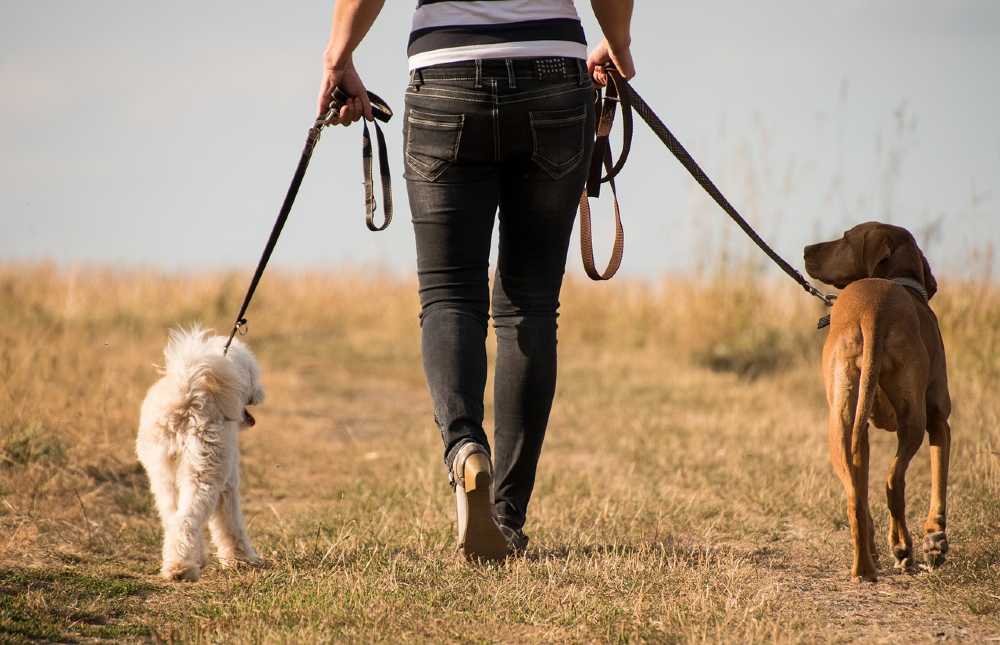
You can no longer go for hikes or run in the park? You can cater to this by giving your pet their favorite treats occasionally. Set more time aside for cuddling and snuggling because at this point, the pet needs more affection.
If it can’t comfortably walk or move, carry them or offer some form of assistance. For example, you can help your dog down or up the stairs, carry them in or out of the car among other things. It is the little things that count and add value to the quality of their lives.
Senior Dog Care FAQs
Senior dogs require special care because they undergo changes not only physically but also mentally. To ensure that your pet enjoys a good quality of life, here are some FAQs.
There is no universal classification for senior dogs. It all depends on the type of dog breed as well as the dog’s body weight. Generally, large dog breeds usually age faster compared to smaller breeds. In addition to that, dogs that are obese or overweight tend to quickly age than their lean counterparts.
We can say that a dog is senior if it has reached half of its life expectancy. At around 6 years, larger dogs are considered seniors because they normally have a life expectancy of 12 to 15 years. Meanwhile, smaller dog breeds are considered seniors at around 8-9 years because they have a life expectancy of 15 to 20 years.
Senior dogs develop the same health problems as older people. The most common ones include:
- Arthritis
- Heart disease
- Urinary tract disease
- Cancer
- Senility
As the dog starts to grow older, its rate of metabolism will also start to slow down. Physical signs of aging in dogs include:
- Change in behavior
- Hearing loss
- Mental confusion
- Constant weakness and fatigue
- Incontinence among others
Well, eventually you have to implement a new diet plan for your pet. This is because the dog’s physical and mental wellbeing starts to decline. For instance, you might be forced to start buying specific senior large breed dog foods which are fortified with essential nutritional requirements for dogs at the older stage. A low-sodium diet may be great for dogs dealing with hypertension or kidney issues.
Old age in dogs usually comes with the bone and joint health problems. It’s not unusual to find a senior dog suffering from arthritis and related joint aches. To handle this issue and significantly reduce its severity, we recommend supplements for senior dog such as glucosamine and chondroitin sulfate and switching to dog food with glucosamine and chondroitin sulfate. Joint supplements are especially helpful if they are senior and of large breed. A daily or regular dose of the joint supplements will help increase your dog’s energy levels and improve their mobility and ease joint discomforts.
Health complications are the main reason why senior dogs have poor eating habits. Most of them usually have a loss of appetite because of gastrointestinal issues that cause nausea and pain. Sometimes, the pain might make it impossible to move the jaws. Consider feeding your dog some probiotics to support the restoration of your dog’s digestive tract and health.
To stimulate your dog’s appetite, you can decide to cook home-based meals or have freshly cooked Ollie meals delivered to your door.
Generally, you can take your pet to the vet once every six months. But the frequency might change depending on your dog’s need. The vet will examine and help to diagnose diseases while they are still in their early stages. Vet visits are important for a general wellness examination, treating chronic health issues, and preventive care.
Consider the following:
- Going for slow interesting walks
- Taking the dog for car rides
- Allowing your pet to interact with other senior dogs
- Trick training for entertainment and to stimulate the dog’s brain
- Using interactive senior toys
- Occasionally hire a dog walker for them
Final thoughts
Dogs are amazing companions. However, the years they normally spend with us are quite limited. It’s usually saddening to put your dog down because it’s old and can no longer cope with normal life. But even in old age, it’s still our responsibility to take care of them so that they enjoy their sunset years.
Diet, regular exercises, grooming, and vet checkups are some of the things that are important in maintaining a senior dog’s health. Take your time to learn and cuddle with your pet friend and you will enjoy a deeply rewarding experience.

